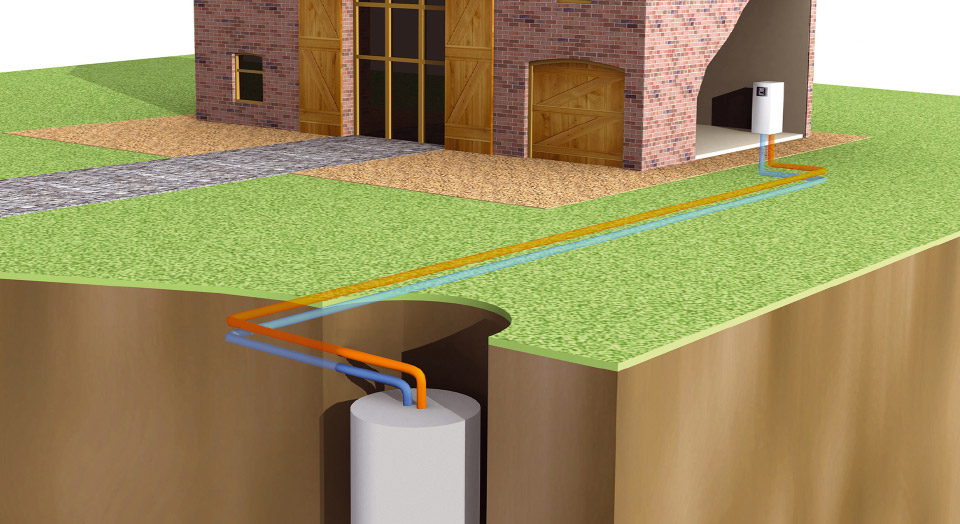
As Wales’ #1 heating, electrical, and renewable energy experts, Heatforce is dedicated to promoting sustainable and energy-efficient heating systems, such as heat pumps, to homeowners looking to reduce their carbon footprint and energy costs. Heat pumps are viable, eco-friendly alternatives to traditional heating systems as they efficiently extract heat from the environment, reducing dependency on non-renewable energy sources and lowering greenhouse gas emissions.
In this article, we delve into the world of heat pumps to understand their working mechanism, the multiple benefits they offer, and how our experienced team at Heatforce can assist you throughout the process of adopting this sustainable heating solution. Join us in exploring the advantages of heat pumps and embrace a greener future for your household.
Understanding Heat Pumps and How They Work
The Principle of Thermodynamics
Heat pumps operate on the principle of thermodynamics, which involves the transfer of thermal energy from a colder environment to a warmer one. This fundamentally differs from traditional combustion-based heating systems that rely on burning fossil fuels to generate heat. Heat pumps extract heat from naturally available sources, such as air, ground, or water, and transfer it to warm your home.
There are three primary types of heat pumps: air source, ground source, and water source. These classifications are based on the medium from which they extract heat. Each type has its unique advantages, installation requirements, and suitability for different properties, but all of them provide energy-efficient heating solutions.
Air Source Heat Pumps (ASHPs)
Air source heat pumps (ASHPs) extract heat from the outdoor air, even in cold temperatures. The extracted heat is then compressed and transferred into your home to warm the indoor air or water. ASHPs can provide both heating and cooling solutions depending on the season, making them versatile options for various climates.
ASHPs typically have lower installation costs compared to other types of heat pumps and are suitable for a wide range of properties. However, their efficiency may decrease during extremely cold weather.
Ground Source Heat Pumps (GSHPs)
Ground source heat pumps (GSHPs) draw heat from the ground, where temperatures remain relatively stable throughout the year, even during cold winter months. Specialised pipes buried underground contain a mixture of water and antifreeze which absorbs the geothermal heat. This heated mixture is then circulated through the system and transferred to your home for heating purposes.
GSHPs are highly efficient and provide consistent indoor heating throughout the year. However, their installations involve extensive groundwork and may carry higher initial costs. This investment is often offset by energy savings and lower running costs in the long run.
Water Source Heat Pumps (WSHPs)
Water source heat pumps (WSHPs) utilise heat from nearby water bodies, such as lakes, rivers, or wells. Similar to GSHPs, the heat is extracted via a network of submerged pipes containing a water-antifreeze mixture. The extracted heat is transferred indoors to heat the air or water.
While WSHPs operate at high-efficiencies and provide stable heating, their installation is limited to properties with access to a suitable water source. They may also require permission from local water authorities.
The Benefits of Heat Pumps
Energy Efficiency and Cost Savings
One of the primary advantages of heat pumps is their energy efficiency. As heat pumps extract heat instead of generating it through combustion, they often yield more heat energy than the electricity consumed.
Due to their high efficiency, heat pumps can significantly lower your energy bills and contribute to cost savings over time. According to the Energy Saving Trust, switching to an air source heat pump could save homeowners between £1,300 to £1,500 per year, while ground source heat pumps could save between £1,200 to £1,400 annually when replacing oil.
Lower Carbon Footprint
Heat pumps are an environmentally-friendly option as they reduce dependency on fossil fuels and lower greenhouse gas emissions. By switching to a heat pump-based heating system, property owners can positively contribute to the global effort in combating climate change. Additionally, as electricity production becomes greener over time, the environmental benefits of heat pumps will continually increase.
Low Maintenance and High Durability
Heat pumps generally require less maintenance compared to traditional heating systems. With regular check-ups and proper care, they can last between 15 to 25 years, providing long-term, sustainable heating solutions.
Compatibility with Smart Systems
Many modern heat pump systems can be easily integrated with smart home technology. This enables homeowners to control their heating remotely and efficiently through smartphones or other devices, further enhancing the energy-saving potential of heat pumps.
Financial Incentives for Heat Pumps
In the UK, the Renewable Heat Incentive (RHI) scheme provides financial incentives for those who opt for renewable heating solutions, such as heat pumps. Homeowners can receive quarterly payments for seven years based on the amount of renewable heat generated by their system. The RHI scheme encourages increased adoption of sustainable heating technologies, making heat pumps an even more attractive option.
Embrace Sustainable Heating with Heatforce’s Expert Guidance
Heat pumps offer an energy-efficient, environmentally friendly, and cost-effective alternative to traditional heating systems. By adopting this sustainable heating solution, you can lower your carbon footprint, save on energy bills, and contribute to the global effort against climate change.
As Wales’ leading heating, electrical, and renewable energy expert, Heatforce is fully equipped to guide you through the process of selecting and installing the right heat pump for your unique circumstances and requirements.
Ready to make a difference and embrace eco-friendly heating? Consult with Heatforce’s knowledgeable team today to learn more about heat pumps and start your journey towards a greener future. Visit our website for professional advice and support in adopting a sustainable heating solution.

